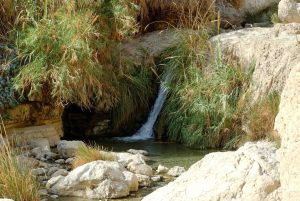by Lois Tverberg
Afterward Moses and Aaron went to Pharaoh and said, “This is what the LORD, the God of Israel, says: `Let my people go, so that they may hold a festival to me in the desert.'” Pharaoh said, “Who is the LORD, that I should obey him and let Israel go? I do not know the LORD and I will not let Israel go.” Then they said, “The God of the Hebrews has met with us. Now let us take a three-day journey into the desert to offer sacrifices to the LORD our God, or he may strike us with plagues or with the sword.” Exodus 5:1-3
During Moses’ encounters with Pharaoh, God told him to tell Pharaoh that the Israelites needed to take a three-day journey into the desert to worship him (Ex. 3:18, 5:3, 8:27). This is confusing because it sounds as if they are asking for a long weekend off, and then they’ll come back. But in fact, in no place does Moses say that they will return afterward.
Another suggestion is that the phrase “three-day journey” is actually not about the length of time they plan to be away, but the distance they need to travel from Egypt before they worship God. In the Scripture, measuring distance in “days of journey” was common. (See Gen 31:33, Num 10:33, Deut 11:1, 1Ki 19:4, etc.) Moses was likely saying that people must be far away from the false”gods” and oppression of Egypt before they worshipped God, or their awesome God might release plagues and destruction. The Egyptians were the ones in danger!
It seems that Pharaoh was undaunted by Moses’ warnings about the power of his God, and he refused to let the Israelites go a safe distance from Egypt. It is easy to imagine that as this holy God approached his people, getting nearer and nearer, the plagues on Egypt became increasingly worse. First the river ran red from some distant danger sweeping downstream, then the insects started swarming, then the animals started dying, then the sky blackened with hail and locusts and utter darkness as this awesome God approached Egypt.
Finally, when the Israelites went ahead and sacrificed a lamb and worshipped their God right in the midst of Egypt, his full power was unleashed on the Egyptians and destruction poured out on the oppressors of his people. Because Pharaoh would not release Israel to worship their holy God, he came to punish their captors and release them himself.
Photo: John Martin

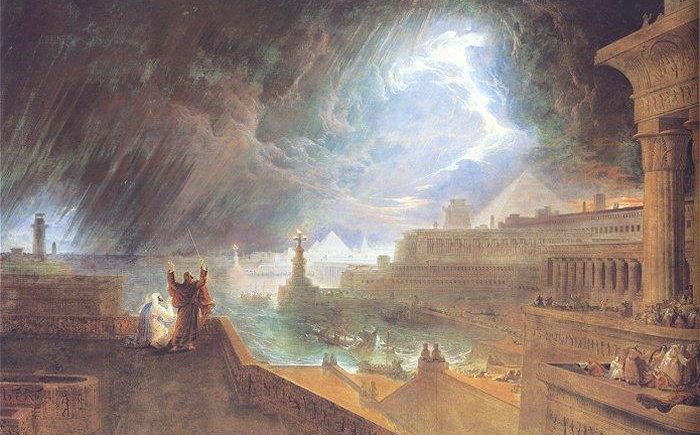
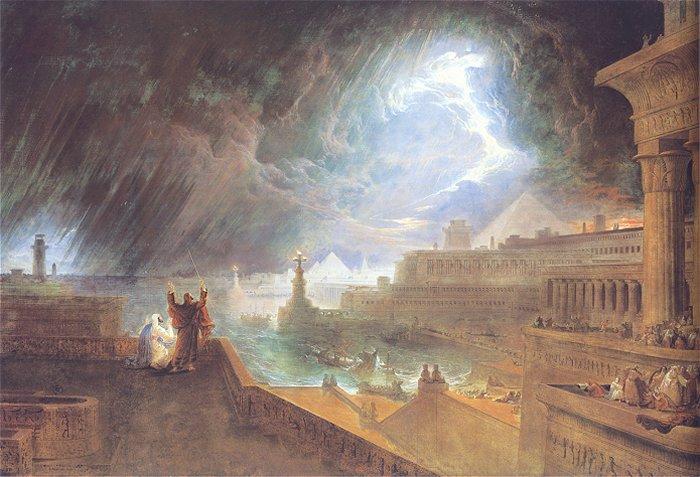
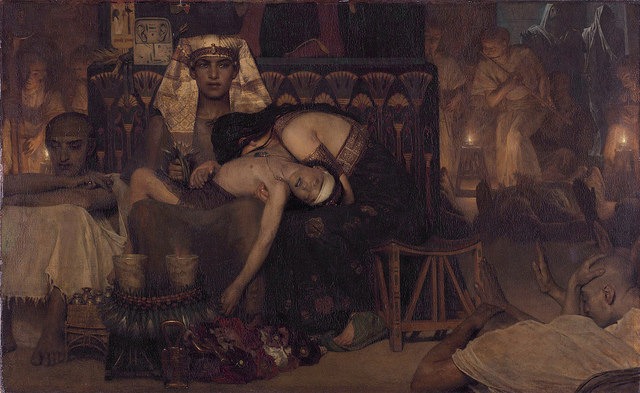
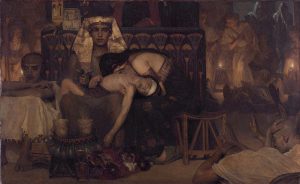 It is important to understand that in Hebrew, the word for “know,” yada, is more broad than in English, describing personal experience, not just intellectual knowledge. To “know” God in this sense is not just to have heard a name, but having awe for him from encountering his power directly. Pharaoh had no fear of this God because he had never experienced God’s power.
It is important to understand that in Hebrew, the word for “know,” yada, is more broad than in English, describing personal experience, not just intellectual knowledge. To “know” God in this sense is not just to have heard a name, but having awe for him from encountering his power directly. Pharaoh had no fear of this God because he had never experienced God’s power.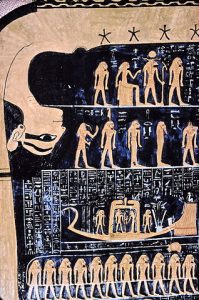 The very first instruction that God gave the Israelites as they were leaving Egypt was to establish a new calendar that was utterly unlike the Egyptian calendar. This may not seem significant to us, but how we measure time is fundamental for how we look at life. Our calendars define the importance of the day to the entire culture, saying whether we should work, rest or worship, or think about some great event in our past.
The very first instruction that God gave the Israelites as they were leaving Egypt was to establish a new calendar that was utterly unlike the Egyptian calendar. This may not seem significant to us, but how we measure time is fundamental for how we look at life. Our calendars define the importance of the day to the entire culture, saying whether we should work, rest or worship, or think about some great event in our past.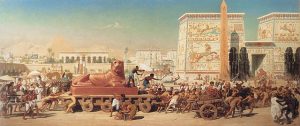
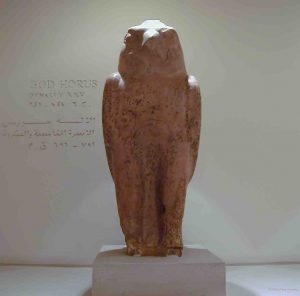
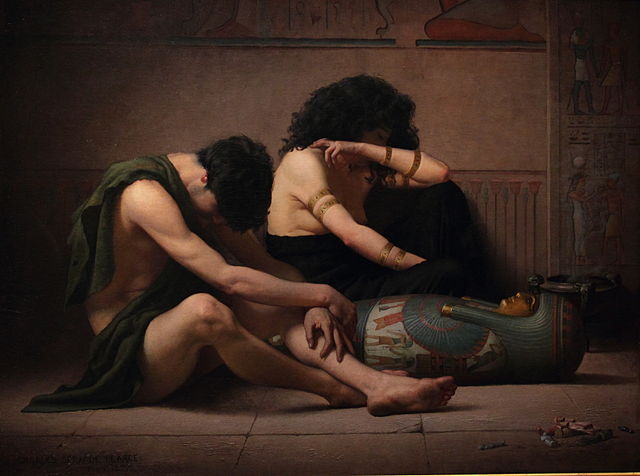
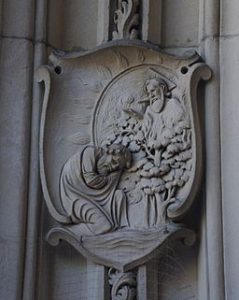 him to somehow go convince Pharaoh to release the Israelites from slavery all on his own. What an impossibility that a stuttering 80-year old shepherd could do such a thing! Perhaps he imagined that God was telling him to raise up a rebellion who could demand release from Pharaoh. In his younger days when he was passionate for justice, maybe he could have done it, but not now. Surely God couldn’t use him.
him to somehow go convince Pharaoh to release the Israelites from slavery all on his own. What an impossibility that a stuttering 80-year old shepherd could do such a thing! Perhaps he imagined that God was telling him to raise up a rebellion who could demand release from Pharaoh. In his younger days when he was passionate for justice, maybe he could have done it, but not now. Surely God couldn’t use him.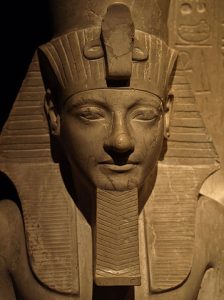 Many of us struggle with the fact that God said that he would harden Pharaoh’s heart, so that God could bring all ten plagues on Egypt before he finally would free the Israelites. It seems like Pharaoh might be innocent pawn which God callously manipulates.
Many of us struggle with the fact that God said that he would harden Pharaoh’s heart, so that God could bring all ten plagues on Egypt before he finally would free the Israelites. It seems like Pharaoh might be innocent pawn which God callously manipulates.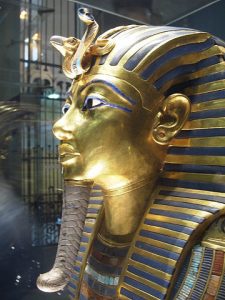 God told Aaron to throw down his staff so that it changed into a snake, fully knowing that the Pharaoh’s magicians could do the same thing. They must have smirked when they saw it, recognizing it from their bag of standard warm-up stunts and laughing to themselves at how easy it would be to replicate. It’s like God was lobbing a slow pitch over the plate for an easy swing – something to draw the attention of the spiritual powers that there was a new “god” in town who
God told Aaron to throw down his staff so that it changed into a snake, fully knowing that the Pharaoh’s magicians could do the same thing. They must have smirked when they saw it, recognizing it from their bag of standard warm-up stunts and laughing to themselves at how easy it would be to replicate. It’s like God was lobbing a slow pitch over the plate for an easy swing – something to draw the attention of the spiritual powers that there was a new “god” in town who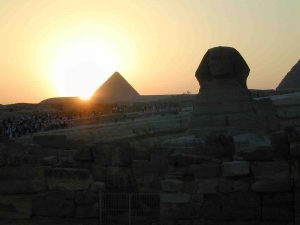 In the next weeks En-Gedi’s Water from the Rock series will focus on Exodus, specifically God’s redemption of the Israelites from Egypt. Christians generally don’t see this story as especially significant. But for thousands of years, Jewish readers have considered it a defining point their history, when God reached down into world events in an unprecedented way. The story of redemption is also central to the rest of the Scriptures, as the foundation of God’s relationship with the people of Israel. We can see the story’s critical importance just by noticing the many references that are made to it throughout the Bible. Here are just a few:
In the next weeks En-Gedi’s Water from the Rock series will focus on Exodus, specifically God’s redemption of the Israelites from Egypt. Christians generally don’t see this story as especially significant. But for thousands of years, Jewish readers have considered it a defining point their history, when God reached down into world events in an unprecedented way. The story of redemption is also central to the rest of the Scriptures, as the foundation of God’s relationship with the people of Israel. We can see the story’s critical importance just by noticing the many references that are made to it throughout the Bible. Here are just a few:
